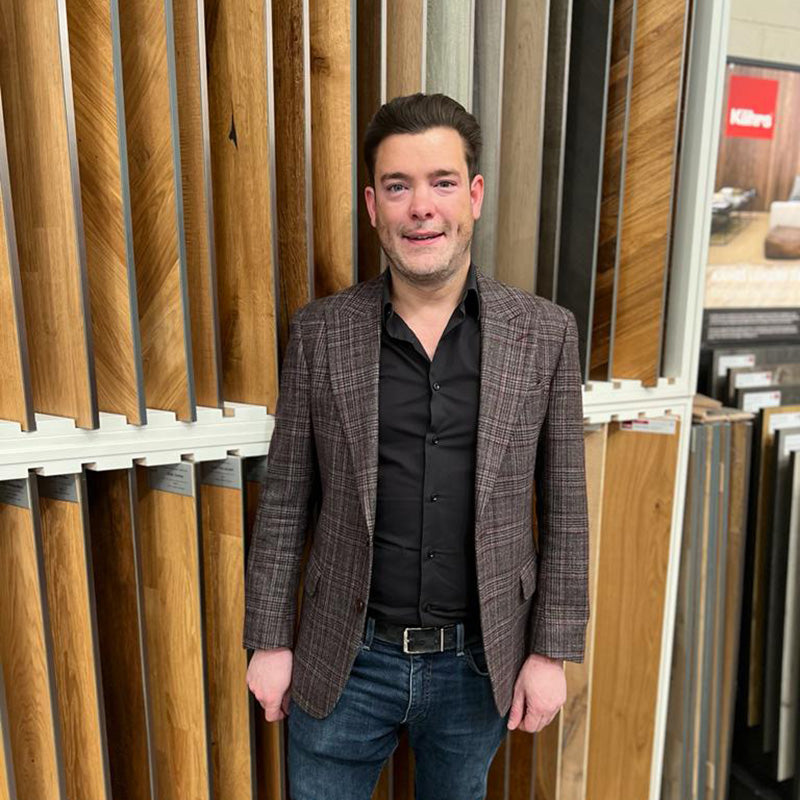Vinyl Flooring – The Ultimate Guide
Since its inception, vinyl flooring has advanced significantly. Previously thought of as a simply practical material, it is today a stylish, long-lasting, and reasonably priced option for homes and businesses. However, what exactly is vinyl flooring, and why has it grown to be such a popular choice?
1. What is Vinyl Flooring?
Polyvinyl chloride (PVC) is the main ingredient of vinyl flooring, a synthetic material that is mixed with additional substances to increase its flexibility and durability. It is made to resemble ceramic tile, stone, or wood without the expense or upkeep. Vinyl is available as planks, tiles, and sheets.
2. Types of Vinyl Flooring
-
Sheet Vinyl: Rolls are perfect for bathrooms and other large, damp spaces. It provides excellent water resistance and a smooth installation.
-
Luxury Vinyl Tile (LVT): Mimics ceramic tile or natural stone while adding tenderness and durability for the feet.
-
Luxury Vinyl Plank (LVP): For living rooms and kitchens, it's a popular choice because it looks like hardwood.
3. Key Benefits
-
Water Resistance: Since most vinyl flooring is completely waterproof, it's ideal for basements, bathrooms, and kitchens.
-
Affordability: Vinyl is more affordable than stone or natural wood.
-
Ease of Maintenance: It is kept clean with a simple sweep and the occasional mop.
-
Comfort: Softer and cosier than wood or tile underfoot.
-
DIY-Friendly: Non-professionals can handle installation with click-lock systems.
4. Where It Works Best
Almost any space can benefit from vinyl flooring. Its water resistance is advantageous for kitchens and bathrooms. Its resilience reduces wear in living rooms and hallways. Vinyl flooring is perfect for places like basements, where moisture is a problem.
5. Things to Consider
-
Subfloor Conditions: For a smooth finish, vinyl requires a subfloor that is clean and level.
-
Sunlight Exposure: Fading may result from prolonged exposure to UV light.
-
Environmental Impact: Although vinyl is made of plastic, there are recyclable alternatives.
6. Vinyl vs. Other Flooring Types
Vinyl is more water-resistant than laminate. It is less expensive than hardwood and softer than tile. For practical customers, its advantages frequently exceed the aesthetic trade-offs, even though it might not be as prestigious as real wood.
7. Installation Options
Depending on the kind, vinyl flooring can be loose-laid, floating (click-lock), or glued down. Each has advantages and disadvantages: loose-lay is quick and simple, click-lock is do-it-yourself friendly, and glue-down is more durable.
8. Design Choices
There are many different finishes, designs, and textures available in contemporary vinyl. You can create almost any style, from elegant marble-effect tiles to rustic wood planks.
9. Longevity and Warranties
Depending on use and maintenance, high-quality vinyl flooring can last anywhere from 10 to 20 years. It's a safe investment because many manufacturers provide warranties that last anywhere from 10 to 25 years.
Vinyl Flooring 101
What exactly is vinyl flooring, then? It is among the most adaptable, durable, and user-friendly materials for contemporary dwellings. Whether you're remodelling a single room or your entire house, vinyl provides the perfect balance of price, style, and utility.



